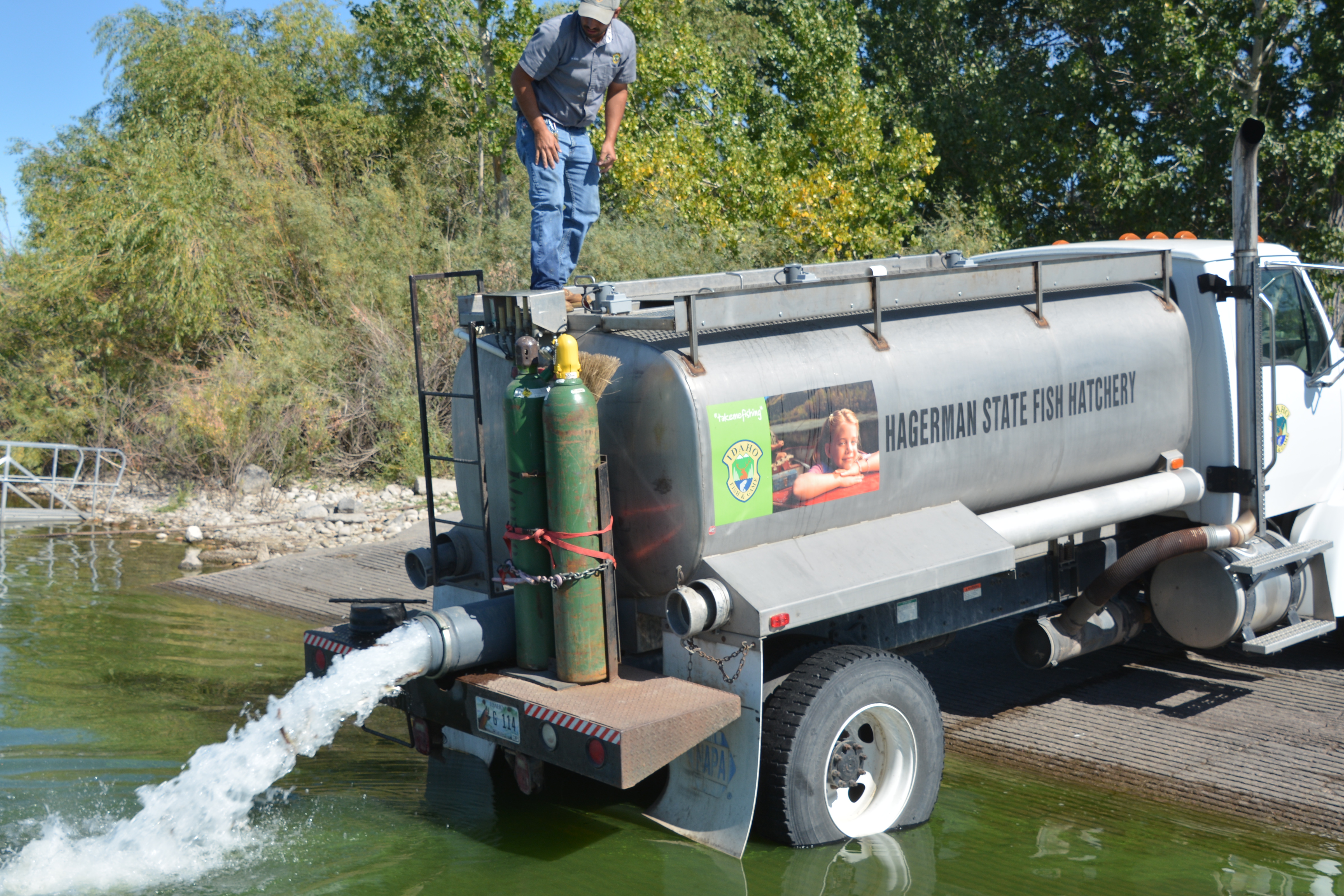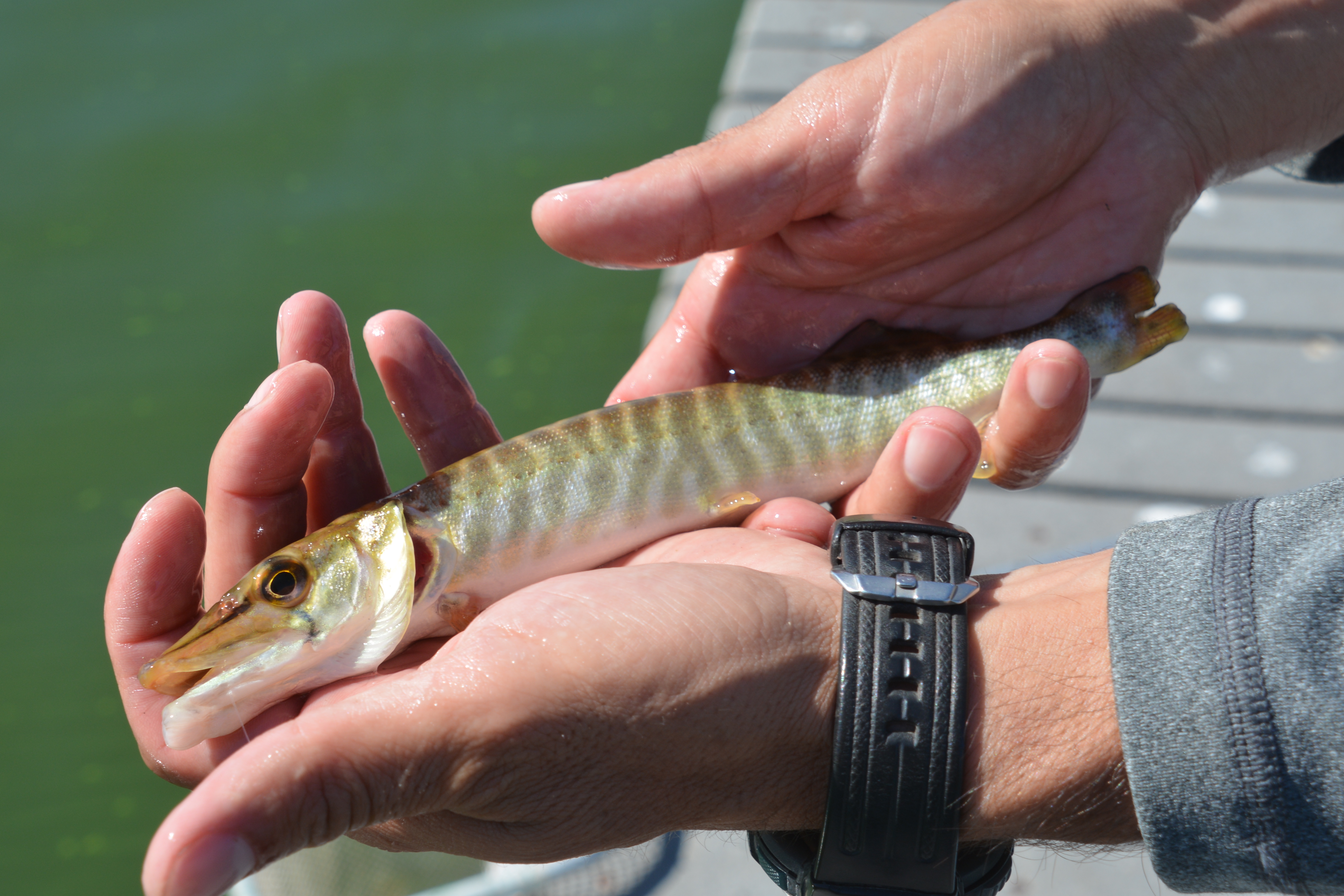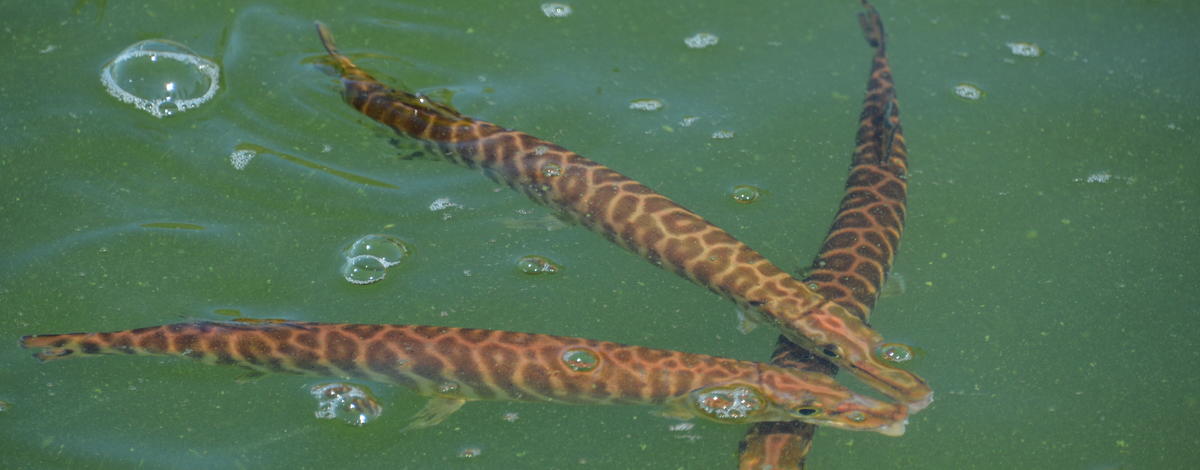A new, unique and toothy fishing opportunity awaits anglers in Southwest Idaho. The Idaho Department of Fish and Game has stocked sterile tiger muskies in Lake Lowell and Black Canyon Reservoir for the first time ever. Tiger muskies are a sterile hybrid of true muskellunge (muskies) and northern pike.
Fish and Game released about 1,000 8- to 12-inch in Lake Lowell on Thursday, Septempber 12, and stocked Black Canyon Reservoir with about 100 tiger muskies the same day.

“We’re excited to offer this unique fishing opportunity in what is such an easily accessible and popular area for Treasure Valley residents,” said Brad Compton, Southwest Regional Manager for Idaho Fish and Game. “We coordinated efforts with the Deer Flat National Wildlife Refuge staff on this, and they have been great to work with.”
Fish and Game stocked Black Canyon Reservoir with about 100 tiger muskies the same day.
These slender fish are skilled ambush predators that lay around in the weeds until their prey — whether fish or lure — gets too close, and then they explode into action with an aggressive strike.

Considering they can reach trophy sizes of more than 40 inches and 30 pounds, hooking into a tiger muskie makes for an incredible angling experience. The current state record tiger muskie was caught in Little Payette Lake in 2013, measured 52.5 inches and tipped the scales at over 44 pounds.
According to Joe Kozfkay, Idaho Fish and Game State Fisheries Manager, these fish could reach lengths of 40-plus inches in around seven years, at which point anglers can harvest them. Until then, Lake Lowell will effectively be a catch-and-release fishery for tiger muskie.
For anglers wondering what effects the newly stocked tiger muskies will have on one of the premier bass fisheries in the southern part of the state, as well as other species that are popular with anglers, Southwest Regional Fisheries Manager John Cassinelli said they are expected to be minimal.
“Dietary studies have found that tiger muskies foraging preference is round-bodied, ‘soft-rayed’ fish,” Cassinelli said. “The tiger muskies are going to eat a little bit of everything when they’re really small, but they really target the long, cylindrical, soft-rayed fish as they get larger, as opposed to spiny fish like bass or bluegill.”
Kozfkay added that tiger muskies are stocked in about 15 total waters around the state, many of which are bass fisheries. Tiger muskies and bass do well together in these waters, and there have been no noticeable negative impacts in these other locations. In the unlikely event there are negative impacts to Lake Lowell’s bass and other sport fisheries, Fish and Game tightly controls tiger muskie numbers through stocking because they are sterile. When stocking stops, it’s just a matter of time before all of the tiger muskies die or are harvested by anglers.
“This has been studied pretty thoroughly, and we know that tiger muskies will primarily feed on ‘rough fish,’ first on suckers, and secondarily on carp in Lake Lowell,” Kozfkay said. “With that said, Fish and Game realizes this is a very important largemouth bass fishery, and if there were unintended impacts to that population, we would cease stocking them.”
But that isn’t likely to be necessary. The science points to tiger muskies doing well alongside Lake Lowell’s other sport fisheries, giving anglers another exciting and unique species to fish for at Deer Flat National Wildlife Refuge.
Compton added that carp and suckers are a significant source of water quality issues in Lake Lowell, and that introducing a new predator that feeds on them may help.


